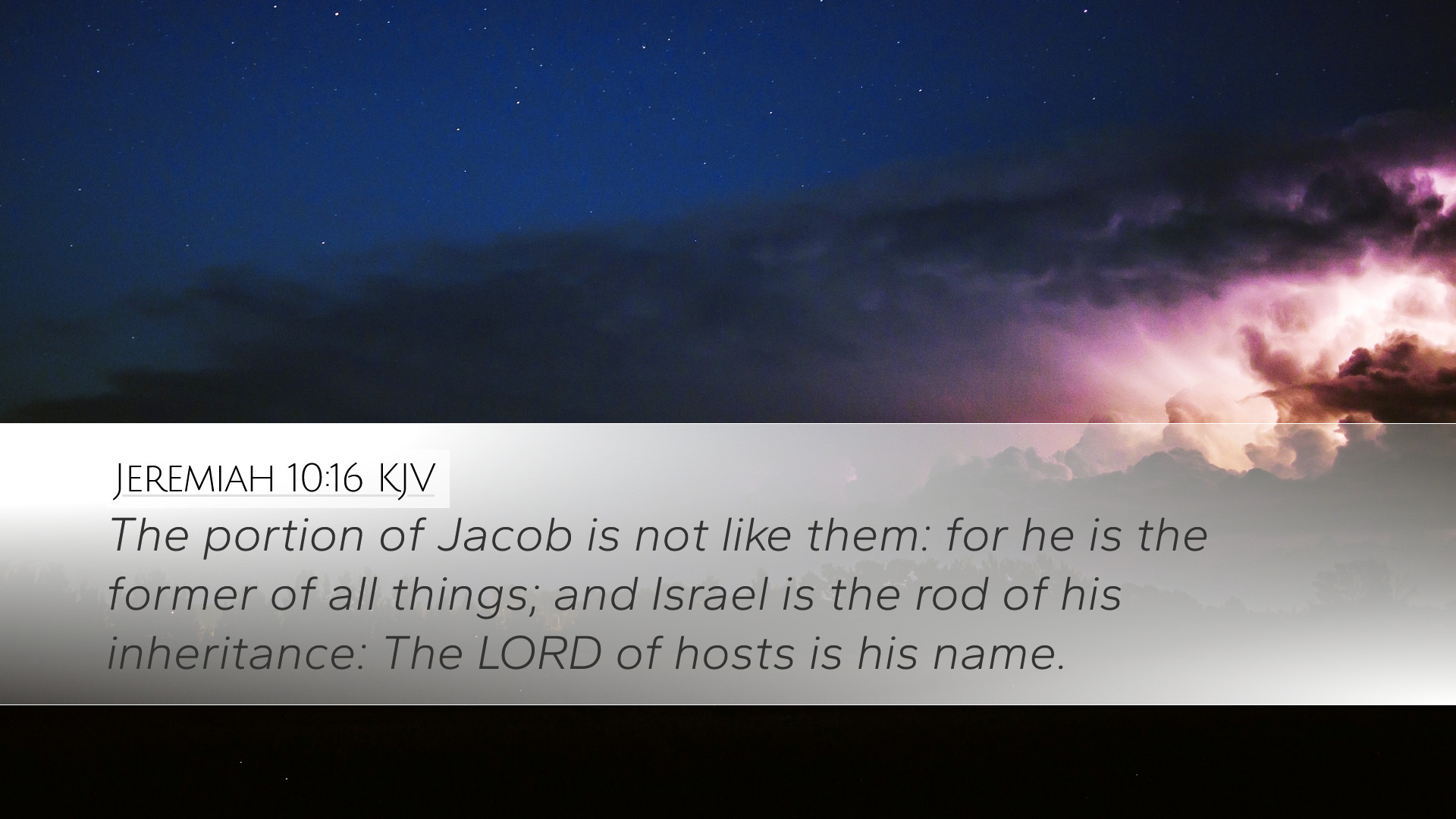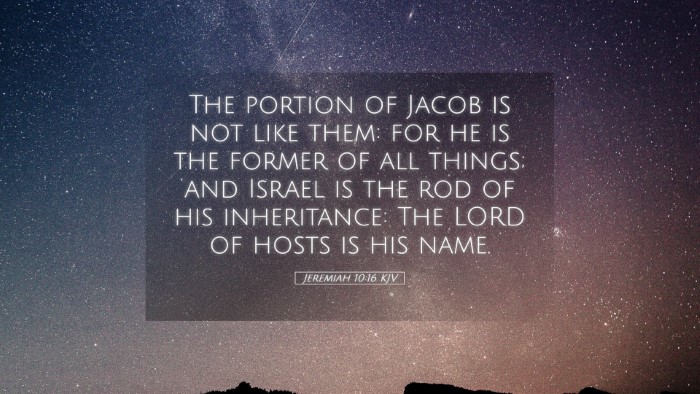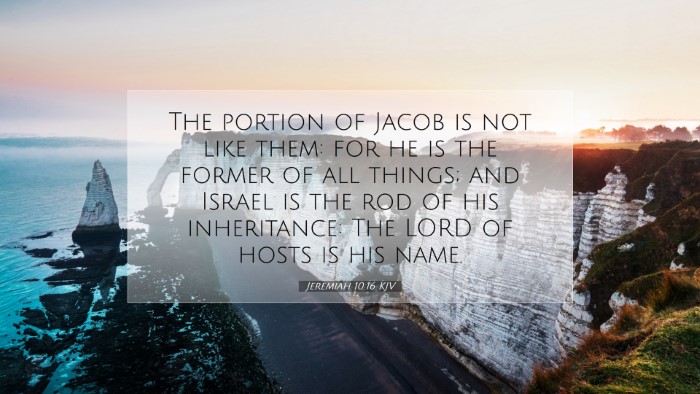Commentary on Jeremiah 10:16
Jeremiah 10:16 states: "The portion of Jacob is not like them; for he is the former of all things: and Israel is the rod of his inheritance: the LORD of hosts is his name."
Overview
This verse serves as a profound statement regarding the distinction between the God of Israel and the idols that the nations worship. It emphasizes God's sovereignty, creativity, and the unique relationship He shares with His people, a theme prevalent throughout the prophetic writings.
The Portion of Jacob
Matthew Henry remarks that "the portion of Jacob is not like them," pointing to the inadequacies of idols in comparison to the living God. Jacob, representing the nation of Israel, is highlighted as having an inheritance that is rooted in something eternal and powerful—God Himself.
- Contrast with Idols: The "them" refers to the idols crafted by human hands. Jeremiah consistently contrasts these lifeless entities with the vibrant, living God who is the creator of all things.
- Significance of Heritage: The term "portion" signifies not just land or material inheritance but also the spiritual legacy that is bestowed upon the people of Israel, setting them apart from other nations.
The Former of All Things
Albert Barnes elaborates on the notion that God is "the former of all things," underscoring the Creator's role in both the natural and spiritual realms. This title speaks to God’s power and authority over creation.
- Creator vs. Creation: God’s creatorship affirms that He alone defines reality, unlike the idols inspired by human craftsmanship which can neither create nor sustain life.
- Covenantal Relationship: The phrase emphasizes the foundational belief that God has a sovereign intention for His creation, particularly regarding His covenant with Israel.
Israel as the Rod of His Inheritance
Adam Clarke comments on the metaphor of Israel as "the rod of His inheritance," suggesting an image of strength and discipline. A “rod” can represent both the authority of God and His caring guidance over Israel.
- Divine Authority: The "rod" signifies God’s rulership and the means by which He governs His people, suggesting both protection and correction.
- Belonging to God: The term "inheritance" implies that Israel has a unique status as God's chosen people, allocated to Him as His own, which enhances Israel’s significance in the divine plan.
The Lord of Hosts
The verse concludes with a powerful declaration: "the LORD of hosts is his name." This title reflects God's omnipotence and His command over the heavenly armies. Scholars emphasize that this is a reminder of His sovereignty and His active involvement in both the celestial and terrestrial realms.
- Assurance in God’s Power: The declaration reassures God's people of His unassailable strength against all that opposes them.
- Historical Context: Within the context of Jeremiah’s time, this statement served to remind the Israelites of their security in their God, especially as they faced impending judgment and external threats.
Lessons for Today
The themes within Jeremiah 10:16 resonate deeply with contemporary believers. There are several key lessons for reflection:
- Proximity to Idolatry: The differentiation between the living God and idols urges today’s believers to examine their lives for modern equivalents of idolatry.
- Understanding Inheritance: Believers are encouraged to recognize their identity as co-heirs with Christ, inheritors of the promises of God.
- God’s Sovereign Control: The affirmation of God’s power and authority is a source of comfort and strength amidst life’s challenges.
Conclusion
Jeremiah 10:16 encapsulates a rich theological understanding that is vital for pastors, students, theologians, and biblical scholars. It reminds believers not only of the uniqueness of their relationship with God but also of His enduring sovereignty over all creation. In recognizing that "the portion of Jacob is not like them," today’s readers are challenged to trust in the Creator rather than in the transient and hollow offerings of this world.


